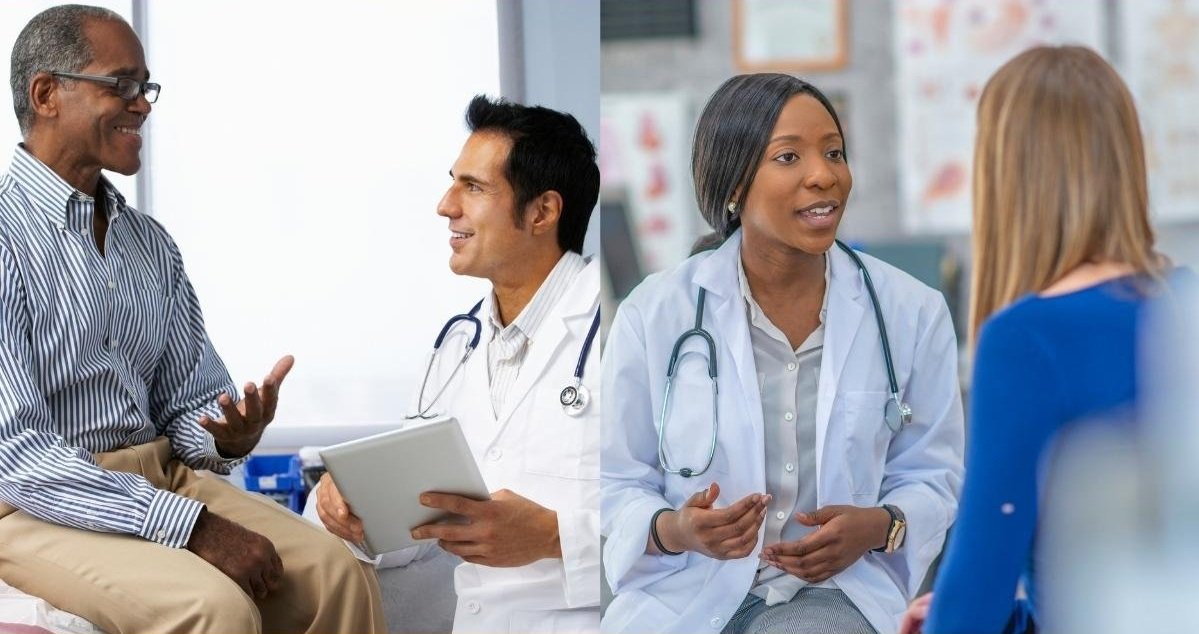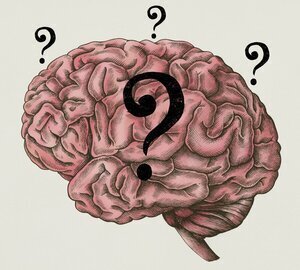
Our Programs
We are a science-based concussion education and advocacy nonprofit. We have educational programs for the following stakeholders:
Undergraduates interested in concussion as it relates to diverse fields such as medicine, neurobiology, psychology, public health, and journalism
Researchers who are seeking collaboration with patients and advocates, and researchers who are seeking study participants.
Patient and Advocate Resources
Website Resources
We have over 55 website resources for patients and advocates, which are divided into several sections:
In About Concussions, we provide a broad range of information on concussions.
Our Treatments and Self-Care section covers medical and rehabilitative treatments, complementary and alternative treatments, and an overview of self-care.
In Affected Communities, we focus on different communities and populations and how concussion affects their lives specifically, plus specific resources for these communities.
The Find Providers section helps you find accredited providers in many different healthcare fields related to concussion.
Our free Concussion Care Webinar is comprehensive and also gives a patient perspective.
The biweekly Concussion Update Newsletter discusses new research and concussion news.
Read further for more information on all these resources.
In our About Concussions section, we provide a broad range of information about concussions; you can read about all these resources on the About Concussions Overview page. Here are examples of resources in this section:
–General information about concussions: What Happens to Your Brain When You Get a Concussion?
–Symptom-based resources: Sleep and Sleep Problems, Headaches, Cognitive Dysfunction, Mental Health, Persistent Symptoms After Concussion, and more.
–Resources that address social factors: The Invisible Injury, Care Disparities, and A Brief History of Concussion as a Public Health Issue.
–Resources on related conditions and long-term effects: PTSD and Neurodegenerative Diseases.
Our Treatments and Self-Care section is divided into five sections; you can read about all these resources on our Treatments and Self-Care Overview page. Here are examples of resources in each section:
–Recovery Guidelines: Immediate Care, Guidelines for Recovery, Flyer for Patients: Navigating Your Recovery, Your Child or Adolescent Was Just Diagnosed with a Concussion: What Do You Do Now?
–Medical and Rehabilitative Treatments: Concussion and Rehabilitation Clinics, Physical Therapy, Vision Therapy, Medication, Cognitive Rehabilitation, Graduated Exercise Therapy, Occupational Therapy, and more.
–Learn About Different Kinds of Healthcare Providers: Physiatrists, Neurologists, Psychologists, Neuropsychologists.
–Complementary and Alternative Treatments: Acupuncture, Yoga and Meditation, Craniosacral Therapy, Massage Therapy, CBD/Cannabis (research info), Light Therapy (Photobiomodulation)
–Self-Care: We recommend you start with our Overview of Self-Care, which includes sections on Sleep, Nutrition, Exercise, Sensory Sensitivity, and Emotional Wellness.
In our Affect Communities section, we focus on different communities and populations and how concussion affects their lives specifically, plus specific resources for these communities. You can read about all these resources on our Affected Communities Overview page. Here are the resources in this section:
College Students, Women and Girls, Service Members and Veterans, Pediatric (infants, toddlers, and children), Adolescents, Older Adults, Care Disparities for BIPOC and Females, Survivors of Intimate Partner Violence, Youth Sports Participants, Mental Health Among High Schoolers, Individuals with Pre-Existing Disability, and Workers and Work Places.
On our Find Providers page, we list healthcare providers by specialty and link to search tools provided by the accrediting organizations for each profession. We cover a wide range of medical and rehabilitative providers, complementary and alternative healthcare providers, and information on choosing a good concussion or outpatient rehabilitation clinic.
We include a description of how to use the search tools specific to each specialty and a link to our resource about the treatment or therapy.
We also have lists of providers for some states (US) and provinces.
Webinar: A Patient-Centered Approach to Concussion Care
Webinar: A Patient-Centered Approach to Concussion Care
This free course is available for patients, advocates, and coaches; the webinar is here.
Dr. Sandel presents the most up-to-date recommendations "for expert, collaborative, and coordinated care that is accessible for patients in the acute phase after a concussion, and in the rehabilitation phase, if symptoms are persistent and chronic."
Conor Gormally, age 24, details his journey with multiple concussions and persistent symptoms to educate the viewer about the patient's experience. The program includes specific recommendations and links to provider and patient resources. Read more about this educational program here.
Newsletter
Our biweekly Concussion Update newsletter provides thoughtful synopses of new research, news related to concussions, opportunities for free webinars, and calls for study participants to participate in research.
Healthcare Provider Resources
Webinar for non-physician healthcare providers
A free, 45-minute webinar for non-physician healthcare providers
A Patient-Centered Approach to Concussion Care
The learning activity features Dr. Sandel, a physiatrist and brain injury physician, and Concussion Alliance Co-Executive Director Conor Gormally, who has experienced multiple concussions and persistent post-concussion symptoms (PPCS). In a video format, Dr. Sandel presents the most up-to-date recommendations "for expert, collaborative, and coordinated care that is accessible for patients in the acute phase after a concussion, and in the rehabilitation phase, if symptoms are persistent and chronic." Read more about this course here.
Resources for School Nurses
In our resource for grade school nurses, we highlight suggestions for interacting with parents and students, as well as provide resources to help support students in their return to school and sport.
Newsletter
Our biweekly Concussion Update newsletter provides thoughtful synopses of new research, news related to concussions, opportunities for free webinars, and calls for study participants to participate in research. Approximately 35% of our Concussion Update newsletter subscribers are healthcare professionals.
Internship Program and Volunteer Opportunities for Undergraduate and Graduate Students
Internship Program
Our internationally recognized Concussion Education & Advocacy Internship Program for undergraduate students is a remote program serving students throughout the U.S. and Canada.
Our summer internship program (8 weeks) and our December internship program (3 weeks) provide a professional experience for the next generation of researchers, advocates, healthcare providers, and policymakers. See our Internship Program page for more information.
We have also worked with a few undergraduate and graduate students to provide longer-term internships and practicums.
Science Writing Volunteer Opportunities
We have volunteer opportunities for undergraduate and graduate students to write for our Concussion Update Newsletter. Contact us for more information.
Supporting Research
We work with multiple research groups by
promoting research calls for study participants
referring patients directly to clinical trials
writing Letters of Support for research groups applying for grants
participating in research design committees as patient advocates
We promote research calls for study participants at the top of our Concussion Update Newsletter in the Opportunities section. We have over 3,300 subscribers to our newsletter.
Research teams and studies we work with
The NEW–HOPE–TBI study, a multicenter collaboration between the University of Washington BRaIN Lab (Seattle, WA), the Icahn School of Medicine at Mount Sinai (New York, NY), the University of California San Francisco (San Francisco, CA), and Massachusets General Hospital (Boston, MA).
Concussion Alliance is part of the study’s Community-Based Participatory Research team. We provided a Letter of Support that was part of the successful application for an NIH grant. We are participating by giving input on study design and recruiting study participants.
The Late Effects of Traumatic Brain Injury (LETBI) project at the Icahn School of Medicine at Mount Sinai
We are assisting with the LETBI study, a long-term research project by a renowned team at the Brain Injury Research Center at the Icahn School of Medicine at Mount Sinai, New York, NY. We are promoting their call for study participants via the Opportunities section of our Concussion Update Newsletter.
Military Traumatic Brain Injury Initiative (MTBI²), formerly Center for Neuroscience and Regenerative Medicine (CNRM)
The Military Traumatic Brain Injury Initiative (MTBI²) is part of the Uniformed Services University of the Health Sciences (USUHS) in Bethesda, MD. In the past, we’ve helped recruit study participants for “A Randomized, Controlled, Blinded Study of Internet-guided Cognitive Behavioral Therapy for Insomnia in Military Service Members with History of Traumatic Brain Injury.” We have also recruited study participants for their “Remote Research Trial of a New Digital Therapeutic Mobile App for post-concussion depression.
"Working in collaboration with Concussion Alliance has been exceptional. Malayka and Conor Gormally are passionate about mTBI research and it shows. Our study team utilized the Concussion Alliance newsletters to reach more potential study participants for various Digital Therapeutics (DTx) clinical trials. Our team values the relationship with Concussion Alliance and is proud to support a nonprofit organization that works tirelessly to facilitate awareness of concussions, persistent post-concussion symptoms, and enhance treatment feasbilty options for both civilians and military service members alike."
~ David L. Brody, MD PhD, Professor of Neurology, Uniformed Services University of the Health Sciences (USUHS), Chief Scientific Officer / Chief Innovation Officer (CSO/CIO), Military Traumatic Brain Injury Initiative (MTBI2)
Massachusetts General Hospital and Harvard Medical School
We promoted a call for study participants for research by Massachusetts General Hospital and Harvard Medical School, focusing on a program to help optimize concussion recovery over four 45-minute virtual sessions.
University of Washington Biorepository and Integrated Neuropathology (BRaIN) Laboratory
We have written Letters of Support for BRaIN lab applications for NIH grants and state-based TBI funding. Drs. Dirk Keene and Nolan are regular Expert Guest Speakers for our Concussion Education and Advocacy Internship Program.
Florida Atlantic University’s Christine E. Lynn College of Nursing sponsored “Mind Over Matter” (M.O.M.) project, an initiative of the Patient-Centered Outcomes Research Institute
We wrote a Letter of Support for the research team’s application for PCORI funding, which was successful. We then worked as a collaborative partner helping with study design for the team’s PCORI-funded project, “Mind Over Matter: A Veteran-driven Roadmap to Research on Traumatic Brain Injury (M.O.M.).” The goal of the (M.O.M.) project is to “bolster patient-centered outcomes research and comparative effectiveness research in order to identify treatment options for TBI that are effective, acceptable, and meaningful to the veteran population.” Read more here, and see the press release here.
CARF International
Concussion Alliance participated in the field review of the concussion program standards for the CARF Concussion Rehabilitation Program. From the CARF press release: “More than 270 stakeholders provided feedback to create the first international best-practice framework. CARF International has developed the first interdisciplinary, field-driven standards of its kind for Concussion Rehabilitation Programs, which will be released in January 2024. “
VA Boston Healthcare System
We recruited a significant percentage of the study participants for a clinical trial, “Light-emitting Diode (LED) Research Project to improve memory and thinking in people who have suffered traumatic brain injury (TBI).” Read our blog post to learn more.
University of Utah, TBI and Concussion Center and the Department of Neurology
We are assisting with the recruitment of study participants for their ongoing clinical trials. See our blog post with an interview of one of the study participants. “Photobiomodulation Therapy to Improve Brain Health and Resiliency, A Pilot Study.”
University of Maine: Brain Injury, Education, and Rehabilitation Lab
We have promoted multiple calls for study participants for research by the Brain Injury, Education, and Rehabilitation Lab at the University of Maine.
VA Portland Health Care System and Department of Neurology, Oregon Health & Science University
We helped recruit for the clinical trial, “Improving sleep, sleep-related outcomes, and biomarkers in Veterans.” See our blog post recruiting study participants.
NIH-funded Epilepsy Research Program with the U.S. Army Medical Research and Development Command and the Congressionally Directed Medical Research Programs (CDMRP)
We promoted a call for study participants for the NIH-funded Epilepsy Research Program to better understand the incidence of post-traumatic epilepsy (PTE) following a traumatic brain injury (TBI) and to improve patient care and outcomes.










